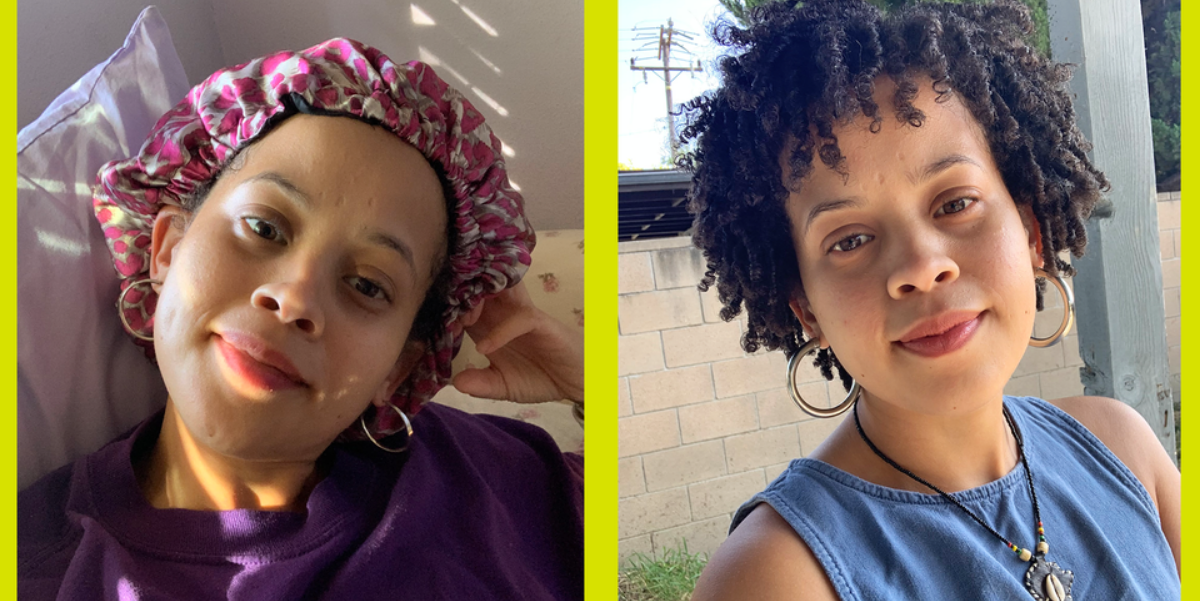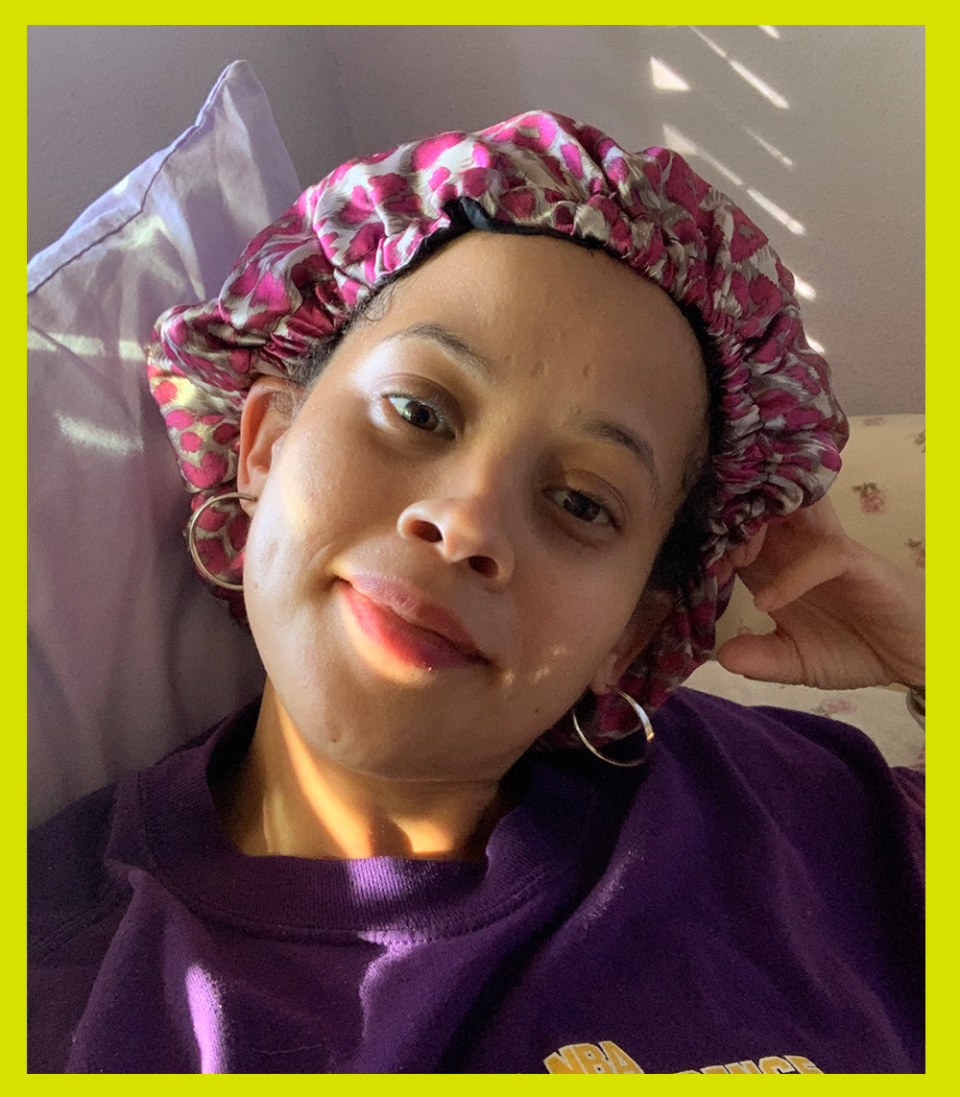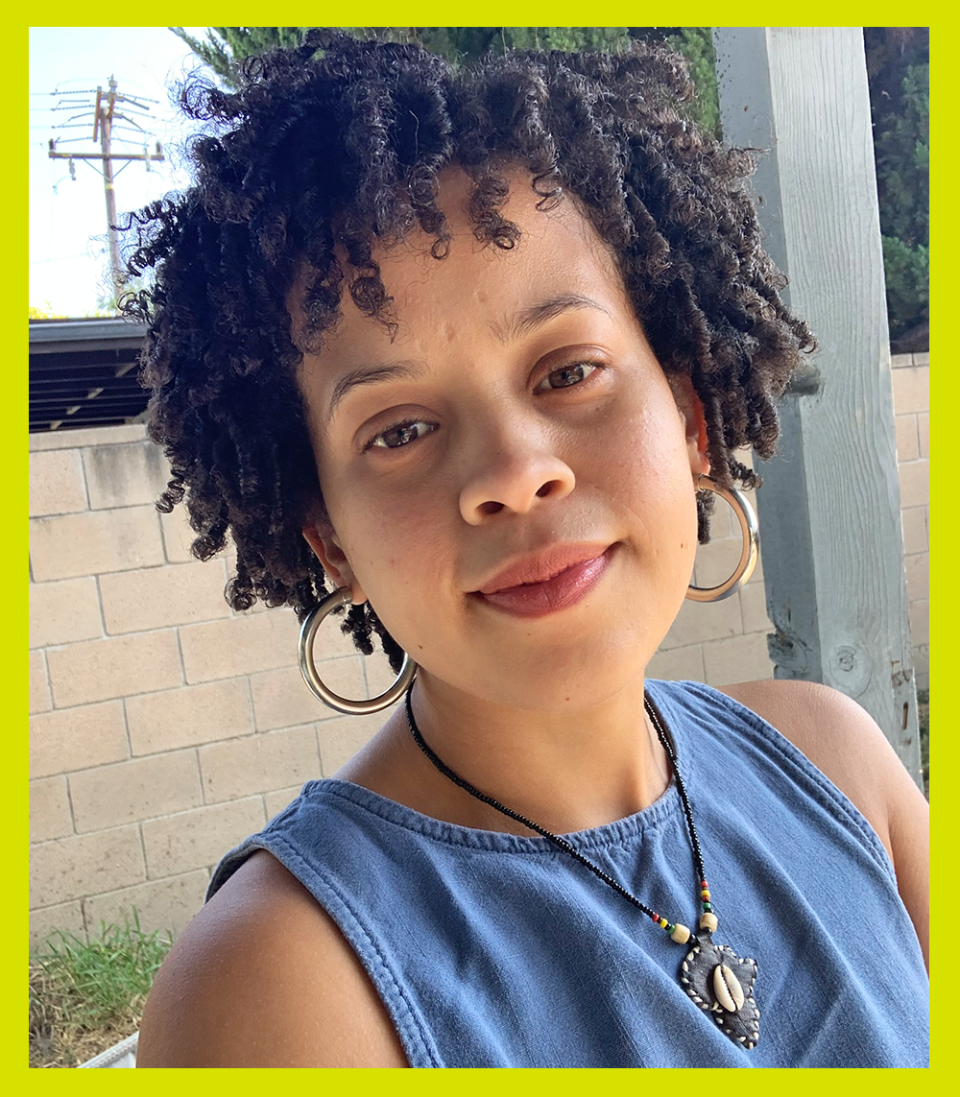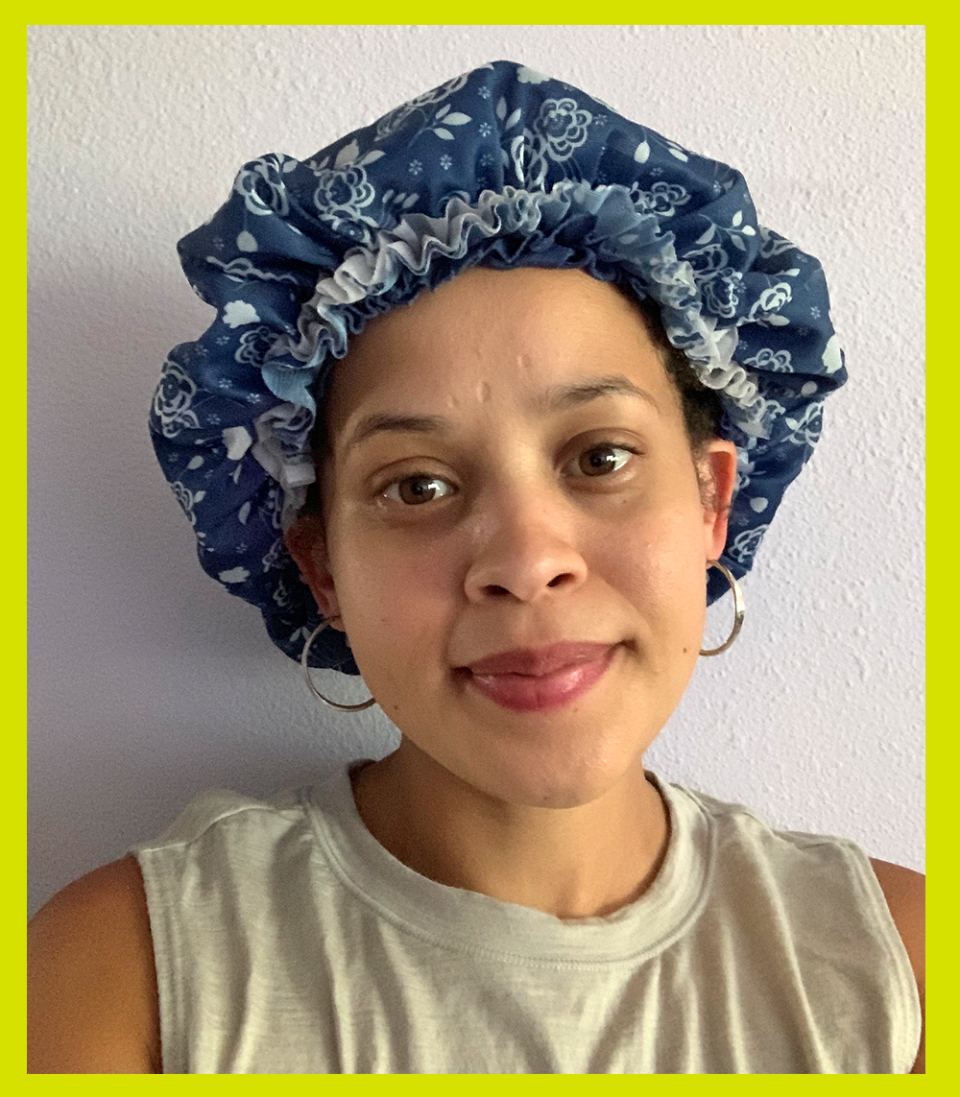Why I Never Let My White Roommates See Me in a Bonnet

You know how you apply lip balm, like, eight times a day and also have spares in your purse, car, desk, backpack, gym bag, and nightstand? Yeah, well, in my South African household, and in many other Black homes, bonnets are our lip balm. We use them for everything: as a post-workout staple to prevent sweating out our hair; as a way to preserve our time-consuming and costly hairstyles; as a nighttime shield to protect our hair from breakage and split ends; as a moisture-retaining tool to keep edges down and curls intact.

The bonnet is part of a ubiquitous Black experience that I grew up with, that my older sisters grew up with, and that my mom grew up with. I remember going to Black hair salons as a child and being groomed by Laketa, our family’s stylist, who would later teach me how to wrap my hair when I was 10. Whether my hair was braided, straightened, or weaved, I was fascinated with learning how to protect my hair, and it became a ritual I looked forward to as a young girl. I saw it as a rite of passage, like the passing of the baton in Black culture.
But as I got older, I quickly learned that as much as I loved my bonnet, not everyone felt the same. In college, whenever I wore a bonnet during the short walk from the hair salon to my dorm, fellow classmates would stare at me and white parents would grab their kids’ hands as I passed. Like with many other Black experiences, my bonnet was seen and described as “ghetto,” “dirty,” and “weird.” Eventually, I got so tired of the stares and unwarranted comments that I just conformed, and I stopped wearing my bonnet in front of others altogether.
Up until last month, I had spent the past three years living with two white roommates. Like most shared apartments in New York City, we had no prior relationship before moving in, and I was fine with that—excited, even, as I anticipated the new friendships that would form. But I had no idea that my own discomfort around my hair would end up leaving me on edge for years in my own home.

I pride myself on always looking professional and presentable, and I’m aware that society judges based on appearances. Unfortunately, that judgment is only magnified when you’re a Black woman. To uphold my image, I’d wake up two hours before work to make sure my hair was ready to go. Some days, that meant straightening each strand if my bonnet went haywire. Other days, I’d add more oil and conditioner to my hair to help it lie straight and, in turn, be perceived as “neat” or “organized.”
I found I had a hard time walking around the apartment with a bonnet on knowing I was the only one in the house who had to take these extra steps with their hair. Although my roommates were perfectly pleasant, we weren’t close. I didn’t feel comfortable talking to them about my hair. “Wow,” they’d casually comment during wash days, “I can’t believe you spend this much time on your hair each week.” Meanwhile, my female roommate could roll out of bed, shower, and head to work with damp hair, no outward fear of being judged. Her hair would later dry into effortless waves without split ends, frizz, bobby pins, or hours of early-morning work to get it there.
The contrast between the length of time I spent on my hair and the time my roommates spent on their hair was stark, and I kept imagining they were passing judgment each time I walked by. My heart would race when I heard footsteps nearing my room, and I’d immediately pull off my bonnet. Seeing Black women, myself included, code switch—or mute our personalities—to fit in at work came all too natural to me at home. As a journalist in the fashion industry, there’s the perception that having a look that mirrors the majority culture is key to career advancement. The less “different” you are, the more comfortable others will be around you.
I constantly felt like my roommates, and new people in general, didn’t understand the process of Black hair—just the results. And sure, television was working hard to mainstream the reality: Megastars like Tracee Ellis Ross, Marsai Martin, Yara Shahidi, and Issa Rae have worn headwraps or bonnets to bed onscreen. Instagram has even stepped in, with memes and accounts like Bonnet Chronicles popping up to help shed light on the Black hair experience. But the reach was often insular—seen and received by women of color, instead of by the white audiences or cultures that actually need the education.
Still, at least these groups were trying; they were working to stand in the gap of understanding and get the world to appreciate Black culture. And I slowly realized that what I was doing was actually suppressing and hiding the routines and traditions of Black culture. I wasn’t being a bridge by masking my identity at home—I was being a part of the problem. I felt insecure showing that side of myself to my roommates, more concerned about their comfort than mine. And what took me too long to realize was that they never actually seemed to care about what my hair looked like.
As I was praying they wouldn’t judge me if they saw me in a bonnet, I was also judging them, fearful that my lived experience would be invalidated by their seemingly “normal,” cookie-cutter lives. I had internalized every hair discrimination story I had read or experienced at work, convinced it would happen to me at home. And because of that, I spent those first few years living in my head instead of in my home.
Eventually, after two years, I cut off all my hair and started from scratch—partially because it was so damaged and partially because it was a lot of maintenance. I really wanted to do right by my hair this time around; I wanted to care for it properly and take advantage of the clean slate I was given. I suddenly fell back in love with all the preservative features of a bonnet and began to see it once again as a prideful possession instead of a hidden tool I worked so hard to keep secret. The day I paraded around my apartment in my bonnet was the day I reclaimed my authenticity and heritage.

Ironically, a few weeks into me happily sporting my bonnet, I woke up to my roommate wearing one as she ate breakfast. “Hope you don’t mind,” she said between bites, “I borrowed one of yours.” And that’s the thing about representation: It opens the gates to education, acceptance, and support. She had never worn a bonnet in her life, but she valued my experience, saw the benefits, and decided to try one for herself. That morning led to a lengthy and powerful conversation on Black hair and my identity. To my surprise, she was more than happy to hear and learn, and she even thanked me for sharing.
I believe that representation matters. And not allowing myself to be an example of it in a 66 percent white apartment had destroyed me during those two years. In a space where I should have felt free, I was trapped under the pressure I had placed on myself to be discreet. But once I allowed myself to show my white roommates who I really was, my final year of living with them was liberating. I was finally able to exist as I am, without filters or fear of judgment, bonnet and all.
You Might Also Like

